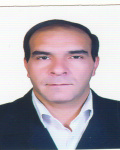| Authors | عباس زارعی تجره,ملیحه سلامی |
|---|---|
| Journal | International Journal of Learning, Teaching and Educational Research |
| Page number | 119 |
| Volume number | 7 |
| Paper Type | Full Paper |
| Published At | 2014-08-11 |
| Journal Grade | Scientific - research |
| Journal Type | Electronic |
| Journal Country | Iran, Islamic Republic Of |
Abstract
Data were collected through known questionnaires and learners’ institutional records. Results of Friedman test showed that metacognitive strategy use was at the highest rank while affective strategy use was at the lowest. Kruskal–Wallis test results revealed that metacognitive strategies were most frequently used by Engineering and Science students whereas compensatory strategies were mostly preferred by students in the humanities. Affective strategies ranked lowest on the three groups of students' preference scale. Furthermore, more proficient learners utilized cognitive, memory and compensatory strategies whereas students with poor language proficiency resorted to compensatory strategies. Moderate positive correlation between students’ beliefs about English language learning and their use of learning strategies were found. Analysis of linear regression showed that use of strategies was predicted from language proficiency and learners’ beliefs about language learning. The present study suggests that not only do students’ beliefs about language learning influence their use of learning strategies, but also their level of English proficiency affects the frequency of use and choices of learning strategies. Keywords: language learning strategies
